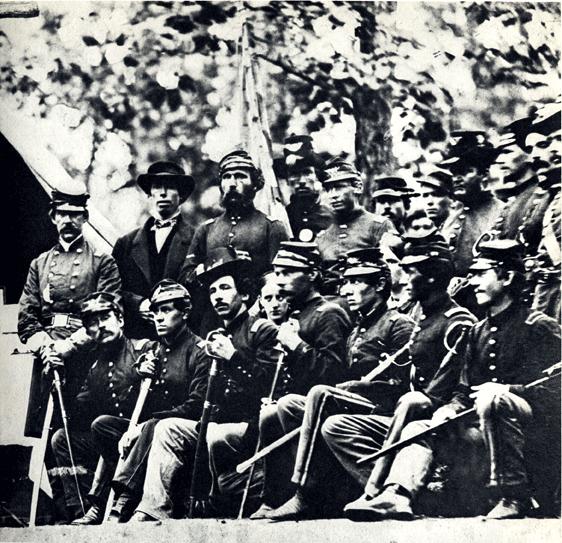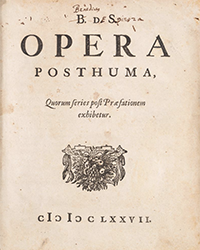-
Rare Book Hub is now mobile-friendly! -
Old World Auctions (June 18): Lot 567. One of the Earliest & Most Desirable Printed Maps of Arabia - by Holle/Germanus (1482) Est. $55,000 - $65,000Old World Auctions (June 18): Lot 681. Zatta's Complete Atlas with 218 Maps in Full Contemporary Color (1779) Est. $27,500 - $35,000Old World Auctions (June 18): Lot 347. MacDonald Gill's Landmark "Wonderground Map" of London (1914) Est. $1,800 - $2,100Old World Auctions (June 18): Lot 1. Fries' "Modern" World Map with Portraits of Five Kings (1525) Est. $4,000 - $4,750Old World Auctions (June 18): Lot 539. Ortelius' Superb, Decorative Map of Cyprus in Full Contemporary Color (1573) Est. $1,100 - $1,400Old World Auctions (June 18): Lot 51. Mercator's Foundation Map for the Americas in Full Contemporary Color (1630) Est. $3,250 - $4,000Old World Auctions (June 18): Lot 667. Manuscript Bible Leaf with Image of Mary and Baby Jesus (1450) Est. $1,900 - $2,200Old World Auctions (June 18): Lot 226. "A Powerful Example of Color Used to Make a Point" (1895) Est. $400 - $600Old World Auctions (June 18): Lot 290. One of the Most Decorative Early Maps of South America - from Linschoten's "Itinerario" (1596) Est. $7,000 - $8,500Old World Auctions (June 18): Lot 62. Coronelli's Influential Map of North America with the Island of California (1688) Est. $10,000 - $12,000Old World Auctions (June 18): Lot 589. The First European-Printed Map of China - by Ortelius (1584) Est. $4,000 - $5,000
-
Forum Auctions
A Sixth Selection of 16th and 17th Century English Books from the Fox Pointe Manor Library
19th June 2025Forum, June 19: Euclid. The Elements of Geometrie, first edition in English of the first complete translation, [1570]. £20,000 to £30,000.Forum, June 19: Nicolay (Nicolas de). The Navigations, peregrinations and voyages, made into Turkie, first edition in English, 1585. £10,000 to £15,000.Forum, June 19: Shakespeare source book.- Montemayor (Jorge de). Diana of George of Montemayor, first edition in English, 1598. £6,000 to £8,000.Forum, June 19: Livius (Titus). The Romane Historie, first edition in English, translated by Philemon Holland, Adam Islip, 1600. £6,000 to £8,000.Forum Auctions
A Sixth Selection of 16th and 17th Century English Books from the Fox Pointe Manor Library
19th June 2025Forum, June 19: Robert Molesworth's copy.- Montaigne (Michel de). The Essayes Or Morall, Politike and Millitarie Discourses, first edition in English, 1603. £10,000 to £15,000.Forum, June 19: Shakespeare (William). The Tempest [&] The Two Gentlemen of Verona, from the Second Folio, [Printed by Thomas Cotes], 1632. £4,000 to £6,000.Forum, June 19: Boyle (Robert). Medicina Hydrostatica: or, Hydrostaticks Applyed to the Materia Medica, first edition, for Samuel Smith, 1690. £2,500 to £3,500.Forum, June 19: Locke (John). An Essay Concerning Humane Understanding in Four Books, first edition, second issue, 1690. £8,00 to £12,000. -
Sotheby’s
New York Book Week
12-26 JuneSotheby’s, June 25: Theocritus. Theocriti Eclogae triginta, Venice, Aldo Manuzio, February 1495/1496. 220,000 - 280,000 USDSotheby’s, June 26: Fitzgerald, F. Scott. The Great Gatsby, 1925. 40,000 - 60,000 USDSotheby’s, June 26: Blake, William. Songs of Innocence and of Experience, Printed ca. 1381-1832. 400,000 - 600,000 USDSotheby’s, June 26: Lincoln, Abraham. Thirteenth Amendment, signed by Abraham Lincoln. 8,000,000 - 12,000,000 USDSotheby’s, June 26: Galieli, Galileo. First Edition of the Foundation of Modern Astronomy, 1610. 300,000 - 400,000 USD
Rare Book Monthly
Articles - September - 2008 Issue
The Civil War as Collecting Focus
By Bruce McKinney
This month's issue of the Comet focuses on the American Civil War and by extension, all other such wars that are always occuring and seem to have always been occuring. The Civil War of the United States, 1861-1865 is but one example. In the 20th century 110 civil wars have been documented. They are so common and so violent that few people alive today are entirely untouched.
The American Civil War though is long enough past that it now belongs entirely to history. No human beings that experienced it first hand still live and so we are relieved of all first hand pain. We are then reliant on records be they books, analysis, histories, memoirs, atlases, letters, pamphlets, ribbons, guns, swords, or paintings. In its passing into history we now both remember and interpret the Civil War, investing in it meaning and emphasis by what we choose to hold close.
The majority of Americans have some tangible connection. By bloodline, their own or by marriage through a spouse, it is more common to be connected than not. These days various websites offer paths back to connections unknown, names forgotten, to events that until their rediscovery through searches, may not even have ever been hinted. Such discoveries ignite interest, encourage speculation and send us back into time to understand in personal ways what we may never have understood were our forebearer's perspectives and experiences.
Today more than half of all Americans and to a lesser extent but still a significant percentage elsewhere in the world, are looking back. For many, wars are the salient events in part because in the confusion and destruction of war, more personal history is made, recorded and remembered. It's no accident that the American Civil War has come alive again. Books, full of facts, lost to all but the cognoscenti are scanned at every hour by individuals, dot orgs, dot coms and Google - all adding to the bouliabaise of information. Windows on the past, not so long ago impenetrable walls, now open to those with the skills and interest to look. Our newest frontier is our past.
Booksellers are not necessarily scholars. Some are and others are simply scholarly. They may lack a Ph.D but have learned to understand their material and to describe it well, often incorporating the emerging terms that this generation of deja-viewers is learning to use to unearth material of personal interest. It's a challenge to describe material in ways that were historically improbable, certainly unnecessary and until a few years ago completely unknown. Today they have become necessary. The challenge of the web has not only been that more material has become available, it's that the very way the material, to be found, increasingly requires non-traditional descriptions to be captured within the scope of the new collector's searches. We are at that moment, sawing through the clear board and encountering a knot, when the seller must adjust their perspective to that of the searcher. The rudimentary title, author, place and date printed are no longer sufficient. Relevance is the new currency.


















![<b>Forum, June 19:</b> Euclid. <i>The Elements of Geometrie,</i> first edition in English of the first complete translation, [1570]. £20,000 to £30,000. Forum, June 19: Euclid. The Elements of Geometrie, first edition in English of the first complete translation, [1570]. £20,000 to £30,000.](https://ae-files.s3.amazonaws.com/AdvertisementPhotos/dbc5286a-4210-44e3-bbf0-6031c1c49801.png)





![<b>Forum, June 19:</b> Shakespeare (William). <i>The Tempest</i> [&] <i>The Two Gentlemen of Verona,</i> from the <i>Second Folio,</i> [Printed by Thomas Cotes], 1632. £4,000 to £6,000. Forum, June 19: Shakespeare (William). The Tempest [&] The Two Gentlemen of Verona, from the Second Folio, [Printed by Thomas Cotes], 1632. £4,000 to £6,000.](https://ae-files.s3.amazonaws.com/AdvertisementPhotos/655b361c-71c7-48ba-9455-09c14e8c7494.png)











































![<b>Finarte, June 24-25:</b> ALIGHIERI, DANTE. <i>La Commedia [Commento di Christophorus Landinus]. Aggiunta: Marsilius Ficinus, Ad Dantem gratulatio [in latino e Italiano],</i> 1487. €40,000 to €60,000. Finarte, June 24-25: ALIGHIERI, DANTE. La Commedia [Commento di Christophorus Landinus]. Aggiunta: Marsilius Ficinus, Ad Dantem gratulatio [in latino e Italiano], 1487. €40,000 to €60,000.](https://ae-files.s3.amazonaws.com/AdvertisementPhotos/4ee20109-25f3-42e8-93ab-bd4c8e17093a.png)


![<b>Finarte, June 24-25:</b> BANDELLO, MATTEO. <i>La prima [-quarta] parte de le nouelle del Bandello,</i> 1554. €7,000 to €9,000. Finarte, June 24-25: BANDELLO, MATTEO. La prima [-quarta] parte de le nouelle del Bandello, 1554. €7,000 to €9,000.](https://ae-files.s3.amazonaws.com/AdvertisementPhotos/5adfdf34-8a9a-47e5-9288-5e65dac5ce79.png)



![<b>Finarte, June 24-25:</b> FESTE - COPPOLA, GIOVANNI CARLO. <i>Le nozze degli Dei, favola [...] rappresentata in musica in Firenze…,</i> 1637. €6,000 to €8,000. Finarte, June 24-25: FESTE - COPPOLA, GIOVANNI CARLO. Le nozze degli Dei, favola [...] rappresentata in musica in Firenze…, 1637. €6,000 to €8,000.](https://ae-files.s3.amazonaws.com/AdvertisementPhotos/9a1b8605-a566-4fb7-8a4c-5fb72ac539bc.png)





















